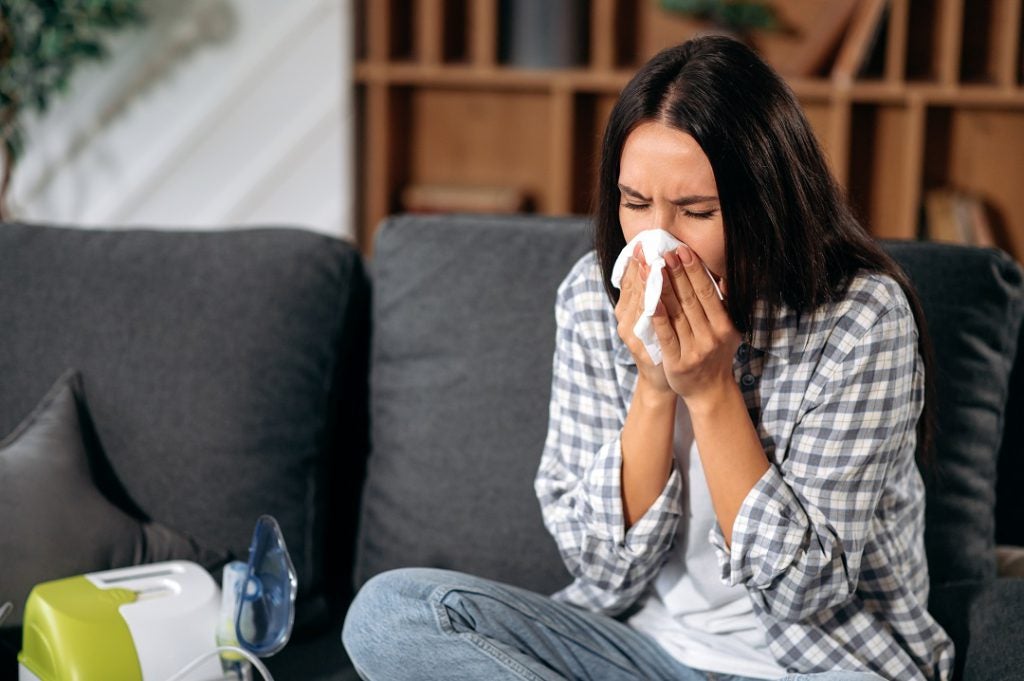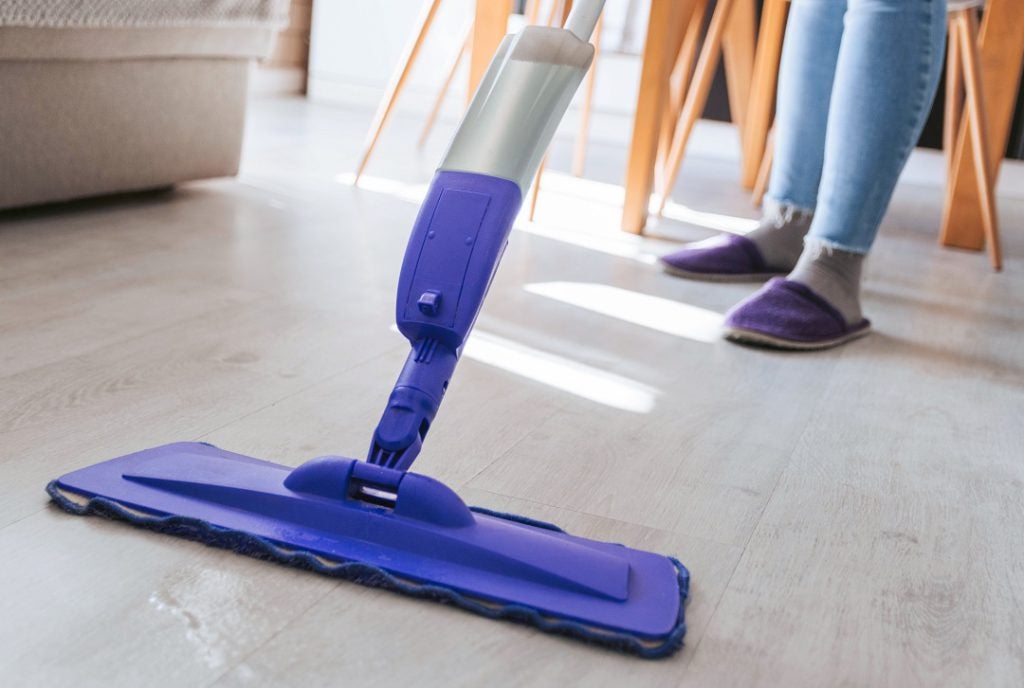If you or a family member are one of the estimated 100 million Americans who suffer from allergies, you know how important it can be to take every step possible to eliminate or mitigate allergy triggers. You also probably know how difficult that can be. Aside from products that actively aggravate allergies because of the materials used, there’s also the prospect of various materials that can trap naturally occurring allergens and release them back into the air. If you’re planning a home renovation that will include new floors, it’s a good idea to consider how various flooring products in your home can affect your allergies.

One of the most common tactics for allergy-prone households is to avoid carpeting and rugs as much as possible. Because carpet is more prone to trapping allergens than hard surface flooring, it’s much easier to keep a tile, vinyl, or wood floor clean of things that can aggravate allergies. After a quick sweep and damp mopping, you can be almost certain that there’s nothing left on your floors that will make its way back into the air—and then your respiratory system.
Opting for hard floors is simply one of the easiest ways to minimize the amount of allergens that lurk hidden in your home. Of course, avoiding carpet floors also eliminates a level of comfort that many homeowners find important in certain areas like the bedroom or family room. Thankfully, there’s a way to have your carpet, er, cake and eat it too.

While choosing products like tile or vinyl flooring has always been the easy way to keep your home environment a little fresher, it’s no longer the case that consumers are limited to hard floors. Thanks to hypoallergenic carpets like the Home Fresh line from Empire Today®, you can now enjoy the comfort of a soft surface beneath your feet—without worrying about how it might affect your breathing.
HOME Fresh carpet uses a special integrated padding designed to greatly improve airflow, allowing the typical household vacuum’s suction to reach deep into the flooring and even beneath it. This makes vacuuming much more effective at removing dust, dander, and other allergens that will often stay trapped in the fibers of a traditional household carpet. Additionally, HOME Fresh carpets are all made with hypoallergenic fibers and are certified to not release any VOCs (Volatile Organic Compounds) into the air in your home.
While it’s often a consideration when carpet shopping, it’s a good idea to look for the potential VOC content of all flooring types, including hard surfaces. VOC “are gases that are emitted into the air from products or processes” and it’s important to note that while certain VOCs are dangerous at any exposure level to any persons, the presence of many other VOCs is not automatically a cause for alarm and may only be an issue for those with certain allergies or sensitivities. In fact, some can be nearly impossible to avoid, as many items in the typical household can release small amounts of VOCs, including candles, air fresheners, and even some forms of cooking. Still, eliminating as many as possible is a good idea for allergy sufferers and is an added bonus for everyone in the home.
Some pressed wood materials—a key component of wood laminate and engineered wood flooring—can contain VOCs. Empire® always strives to offer the highest quality flooring products from trusted manufacturing partners, and these often prioritize the use of VOC-free materials. Still, there are some products where the presence of minor levels of VOCs is unavoidable. If your allergies are sensitive to any level of VOCs, make sure to ask your flooring professional whether the products you are considering have been certified to be VOC-free and that any installation materials needed are also safe.
When attempting to eliminate as many allergens or allergy triggers as possible, it’s easy to overlook the way that certain products might encourage the introduction of a different set of triggers—even if the original product is allergy-friendly. For instance, a genuine hardwood floor might be VOC-free, but it’s possible that certain hardwood floor cleaners might aggravate your allergies. Meanwhile, a waterproof wood-look vinyl floor that can be cleaned with warm water and mild dish soap could offer a more pleasant overall environment for allergy sufferers. There’s no catchall answer to this idea, but it stresses the importance of holistically thinking about your flooring solutions to see how the big picture will affect your life.
When it comes to a topic as expansive as personal allergies, it’s impossible to cover every potential xxx to avoid or feature to look for in new floors. While the most commonly requested info is usually easy to find, some more obscure stuff can be buried in manufacturer data sheets. If you have a specific question about the makeup of a flooring product or the materials used during its installation, don’t be afraid to ask! The flooring professional you work with when selecting your new floors will be more than happy to find that info from you.
Get the latest updates delivered to your inbox.